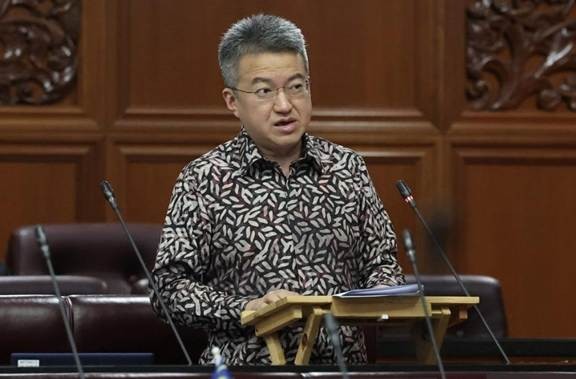
KUALA LUMPUR, Sept 4 (Bernama) -- Malaysia aims to diversify supply chains in the semiconductor sector to ensure that foreign and local investments remain strong and resilient, said Deputy Investment, Trade and Industry Minister Liew Chin Tong.
Liew said that in the new context, Malaysia, together with Singapore and Vietnam, aspires to be an attractive supply chain for foreign and local investors, as driven by the National Semiconductor Strategy (NSS) launched in May 2024.
“We (Malaysia) have shifted from the ‘just in time’ era to the ‘just in case’ era, where international companies seek to create multiple supply chains, compared to previously, when they only had a single supply chain.
“At the same time, during reciprocal trade negotiations with the United States (US), the Ministry of Investment, Trade and Industry (MITI) had clarified that Malaysian exports complement each other’s supply chains and proposed that the US consider granting exemptions to Malaysian products not produced or manufactured in the US,” he said.
He was replying to a supplementary question from Senator Datuk Nelson W Angang about efforts being taken or considered by the government to ensure that confidence among investors and semiconductor industry players would not be impacted by uncertainties due to the US tariffs.
Earlier, Liew also said that MITI collaborates with key industry bodies such as the American-Malaysian Chamber of Commerce (Amcham) and the US-ASEAN Business Council to ensure responsive efforts and
feedback can be channelled effectively. He said that the ministry also regularly holds engagement sessions with American investors in Malaysia, think tanks and other relevant stakeholders.
The deputy minister said that on Aug 15, 2025, US President Donald Trump hinted that semiconductor and pharmaceutical products could be subject to additional tariffs.
He said the US government is conducting an investigation under Section 232 of the Trade Expansion Act of 1962, where specific tariffs on the products in question may be imposed by the US.
“The results of this investigation are expected to be announced before December 2025,” said Liew.
He also said pharmaceutical exports to the US in 2024 amounted to RM3.04 billion, and pharmaceutical imports from the US stood at RM11.77 billion, which is 3.8 times more than exports to the US.
Meanwhile, semiconductor exports to the US are worth approximately RM56.2 billion, representing around 14.5 per cent of Malaysia’s total semiconductor exports.
Currently, the US reciprocal tariff rate on Malaysia is set at 19 per cent, with semiconductor and pharmaceutical products being exempt.
Source: https://www.bernama.com/misc/rss/news.php?id=2463943

